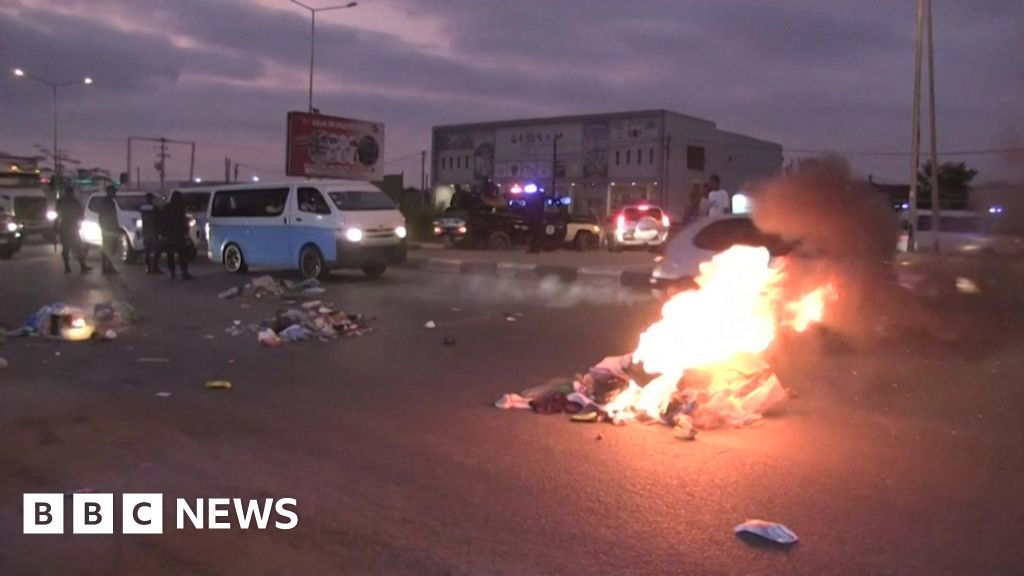El-Fasher, the capital of North Darfur state, has been under siege by paramilitary group the Rapid Support Forces (RSF) since May 2024. Residents are cut off from any humanitarian aid, and thus struggle to find food, medical care, or any other basic health needs.
‘Civilians in El-Fasher haven’t been able to find anything to fill their stomachs’
The FRANCE 24 Observers team managed to contact a person living in El-Fasher. We decided to make our contributor anonymous to protect them from possible reprisals for speaking with us. He told us about his daily life in a city under siege:
"Here, people are dying of hunger. Today, I didn’t eat lunch because there isn’t enough food.
I take vitamins and supplements like Omega-3 and Vitamin C because of the lack of fresh vegetables.
Our bodies and our weight have changed drastically because we are eating so inconsistently.
For more than two weeks, civilians in El-Fasher haven’t been able to find anything to fill their stomachs. People have started eating ambaz, which is what is left of peanuts when you extract the oil. It’s food for animals.
We eat that because there is nothing else.”
To display this content from X (Twitter), you must enable advertisement tracking and audience measurement.
Several sources confirmed to our team that at least some people in El-Fasher have been eating animal feed because there is nothing else.
The price of the remaining food has skyrocketed since the town went under siege. It means that most of the population can’t afford what products are left.
"A sack of meat now costs between four and seven billion Sudanese pounds [Editor’s note: between 1,200 and 2,100 euros], impossible to buy. The prices have shot up. Even the price of ambaz has risen sharply.
Moreover, there is a shortage of cash and banknotes. People use banking apps to make payments, but if you do, you are charged double.
Today, a kilo of meat is two times more expensive if you pay using a bank transfer than if you pay in cash."

A population reliant on community kitchens
In a city where basic goods have become exorbitant, Mohamed Alrofie is trying to keep distributing meals to the population.
"Today, everyone depends on the few community kitchens that are still open in El-Fasher. We only manage to procure food thanks to young volunteers who smuggle it in from neighbouring towns and villages."

"However, it is extremely difficult to guarantee even just one meal per day. At first, we were offering our recipients three meals a day. Then, we went to two, and now, we can only serve one meal a day, and even that is precarious.
Before, we offered people different kinds of food. But now, products have disappeared from the market and those that we can obtain are exorbitantly priced. So now, we’ve turned towards local products like sorghum and millet. But even these products have run out."
Mohamed says that he has seen many cases of severe malnutrition in El-Fasher. Some of the children have edema (fluid retention and swelling) or symptoms of kwashiorkor, a malnutrition syndrome that causes a reddish rash on the skin.
‘It’s a disaster in El-Fasher’
Adam Moussa Obama, director of the NGO Darfur Victims Support, says that 500,000 civilians are now trapped in El-Fasher with no possibility of fleeing.
"1,400,000 civilians have already fled to Tawila and Korma. But in El-Fasher, it’s a disaster…
The infrastructure has completely broken down. There is no food, medication or adequate health services. Moreover, there has been looting and fighting in town. And the Rapid Support Forces (RSF) have been besieging the city for more than a year now.
There is no method of transport between the city and other areas. The only way for people to get around is by donkey. Some civilians don’t even have the means to pay for this type of transport. For example, a journey from El-Fasher costs around 80 dollars, which is huge for someone without a job or any income."
Adam Moussa Obama told us about a conversation that he had recently – one that shows the severity of the situation on the ground:
"I spoke to one of my colleagues on site. I told him that we needed to ask an organisation to send money to buy food for civilians. He told me, ‘Even if you send money, there is nothing to buy here.’
In reality, El-Fasher has completely shut down. There is no work, no jobs, no more food, no more aid that comes in."
Humanitarian aid still blocked
No humanitarian aid has been delivered by road to El-Fasher for more than a year, according to a report published on August 5, 2025, by the World Food Programme (WFP). It says that “the village is cut off from humanitarian access”.
“WFP continues to provide digital cash support to 250,000 people in the city, with which they can purchase whatever food they can still find in the markets, but this falls far short of the massive needs in the besieged city,” the report says.
The WFP received a green light from the Sudanese authorities on August 1 to send an aid convoy towards El-Fasher, but it has been blocked. The RSF still has not authorised access.
Adam Moussa Obama from the NGO Darfur Victims Support told us more about the situation:
"The humanitarian personnel are also blocked. For example, 45 WFP vehicles were stopped in Tina. They’ve been there since mid-July, unable to advance because they haven’t received the authorisation to enter [El-Fasher]."
Five people were killed in June when a joint convoy between the WFP and UNICEF came under attack.
‘The entire population of El-Fasher is in serious danger’
Faced with this humanitarian crisis, Adam Moussa Obama says that civilians, who are the primary victims of the conflict, have been calling for a halt to fighting so that they can return to normal life.
He adds they have been demanding protection for civilians, effective access to humanitarian aid, and for government workers to start receiving their salaries again. Many have gone without any kind of pay for months, which adds to their suffering.
He told our team:
"The entire population of El-Fasher is in serious danger.
In the days or weeks to come, there will be no more food left at all. Except for a few people with links to the militias, most civilians don’t support either party in the conflict.
They simply want to live in peace, to have access to food and to healthcare. They have no link to this conflict between armed groups, but they have found themselves trapped in a desperate situation."
An estimated 24.6 million people are now facing acute hunger, while two million are facing famine or are at risk of famine, according to the WFP. The situation facing children is even more dire.
“According to the latest data from UNICEF, between January and May 2025, more than 40,000 children in North Darfur were admitted for treatment for SAM [Editor’s note: severe acute malnutrition] – double the number admitted during the same period in 2024,” according to a report by the UN agency.










 English (US) ·
English (US) ·